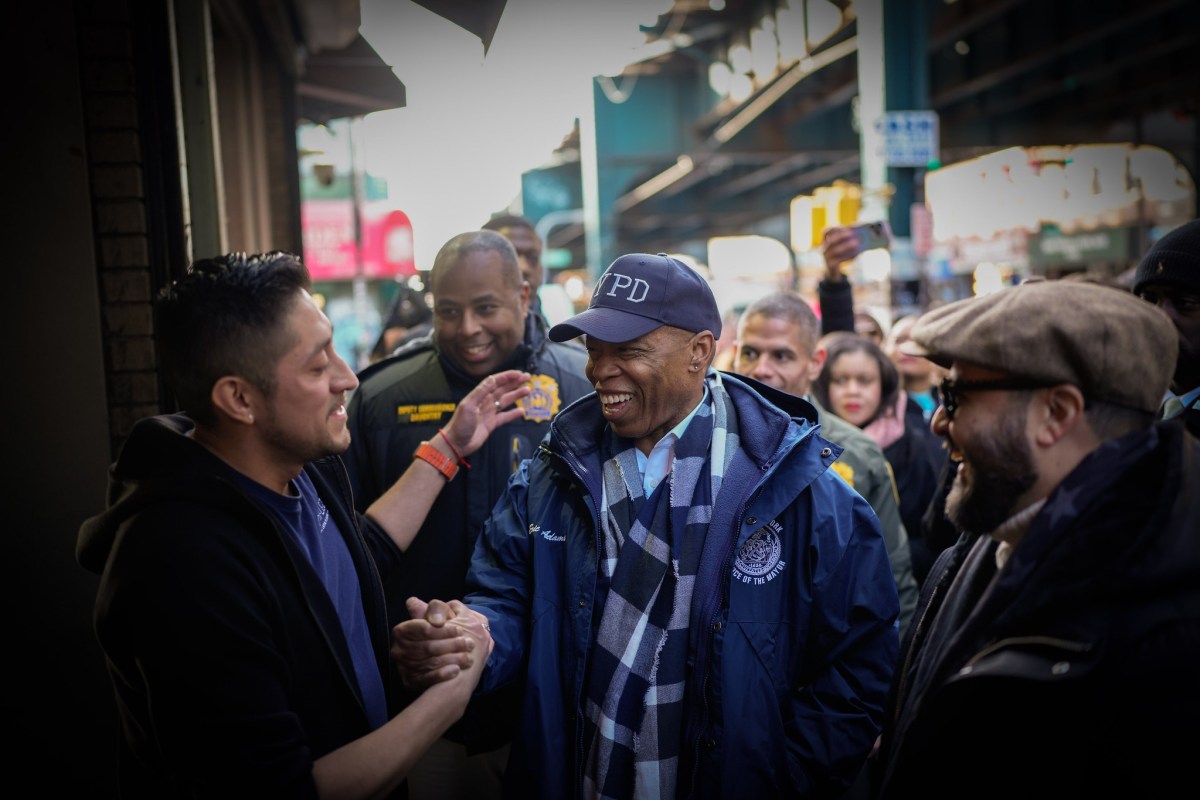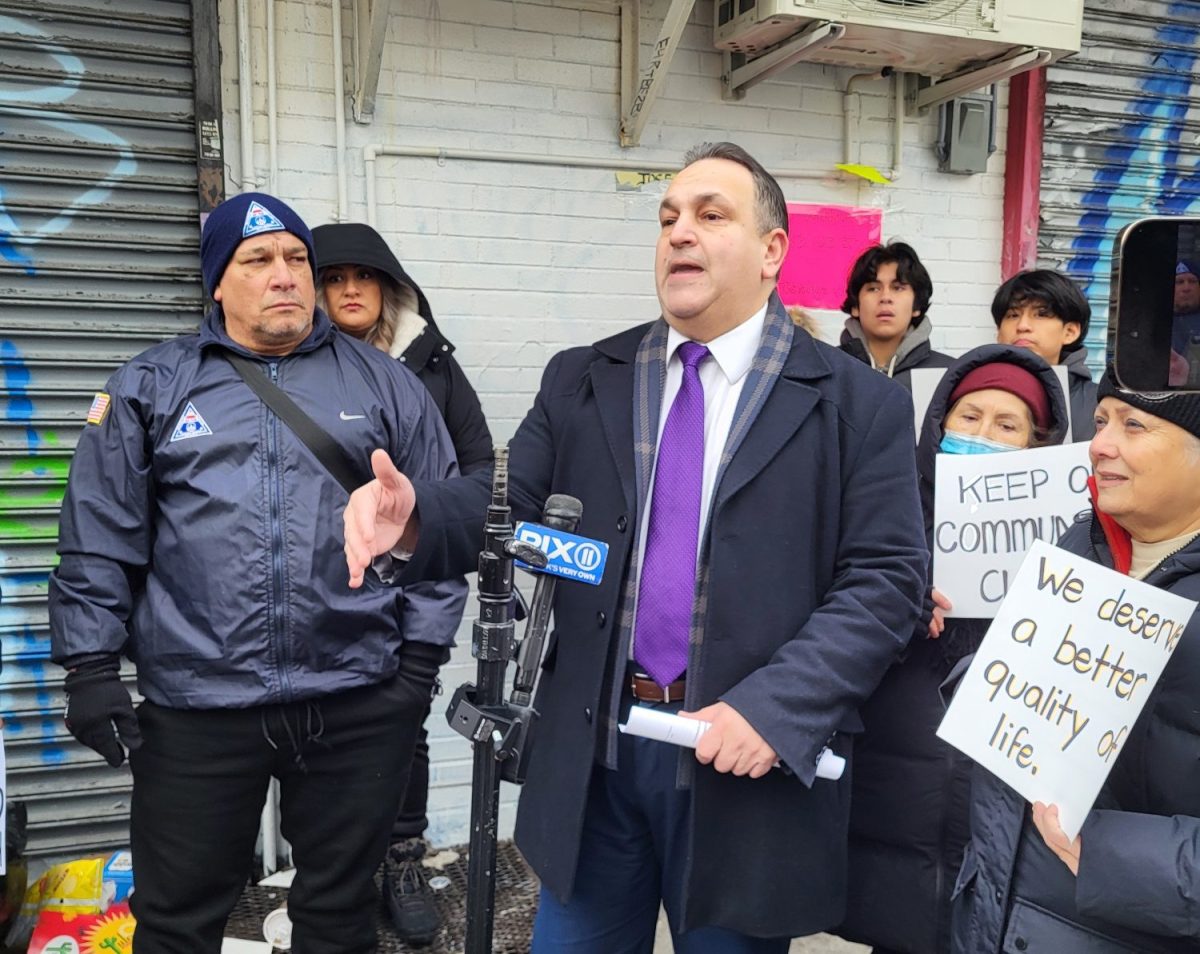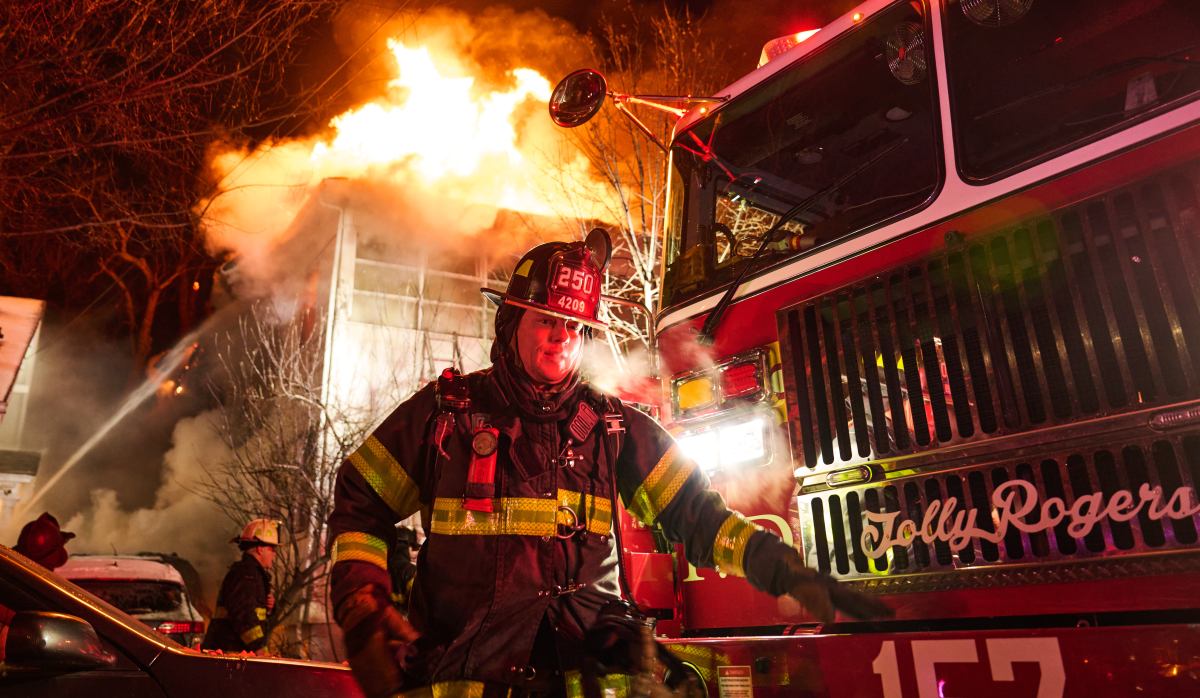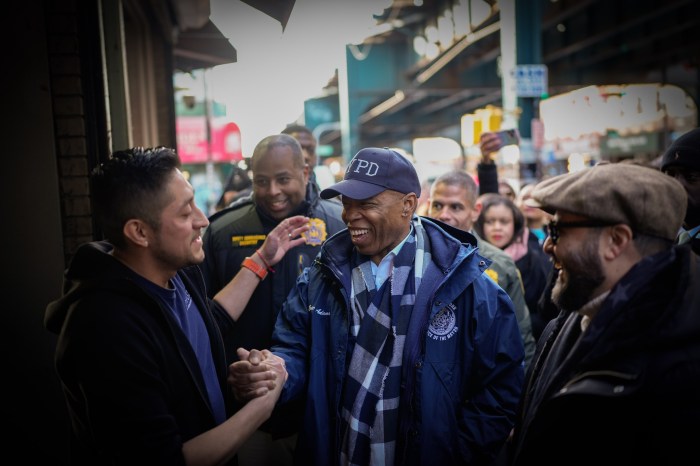
So, the PBA has proclaimed a vote of no-confidence in NYPD Commissioner James O’Neill for his firing of Officer Daniel Pantaleo in the chokehold death of Eric Garner. For good measure, PBA president Pat Lynch called on the governor to fire Mayor Bill de Blasio.
Of course, calling on the governor to fire de Blasio is, as Shakespeare wrote, full of sound and fury, signifying nothing. Some would argue that the same applies to the union’s no-confidence vote in O’Neill.
The PBA last orchestrated such a no-confidence vote in 2004. It was directed at then-Commissioner Ray Kelly and his handling of the fatal police shooting of teen Timothy Stansbury in Brooklyn. Officer Richard Neri had been patrolling the rooftop of a housing complex with his gun drawn when his partner opened a door just as Stansbury pushed it open from the inside. Startled, Neri fired a shot, killing Stansbury.
Some 12 hours later, before the NYPD completed its investigation, Kelly said Neri’s actions had been “outside police guidelines” and appeared to have “no justification.”
A Brooklyn grand jury concluded Neri had fired his weapon accidentally.
But the PBA was so enraged by Kelly’s remarks, which seemed to prejudge the case, that the union issued a vote of no-confidence, with Lynch calling for Kelly’s resignation. As a further knock on Kelly, Neri was subsequently elected a union delegate.
Contrast him with O’Neill, who cares about the rank-and-file. Although Garner’s death in 2014 became an anti-police battle cry and de Blasio had promised “justice” for Garner’s family, O’Neill sent Chief of Department Terence Monahan to work out a deal with Lynch and Pantaleo’s attorney in which Pantaleo would not be fired, and instead be allowed to resign and keep his pension.
Then O’Neill met with the mayor, and reneged on the deal, saying he accepted the recommendation of an NYPD trial judge that Pantaleo be fired.
Unlike Kelly, who had the confidence of Mayor Michael Bloomberg and became the city’s longest-serving NYPD commissioner, O’Neill is a novice. In his three years as commissioner, he has allowed the mayor to appoint his own people to key NYPD positions. When it came to Pantaleo, O’Neill apparently did not know how to push back.
For that failure, many at Police Plaza have called O’Neill “weak.” His real weakness is the perception that he has allowed the mayor to run the NYPD.
































